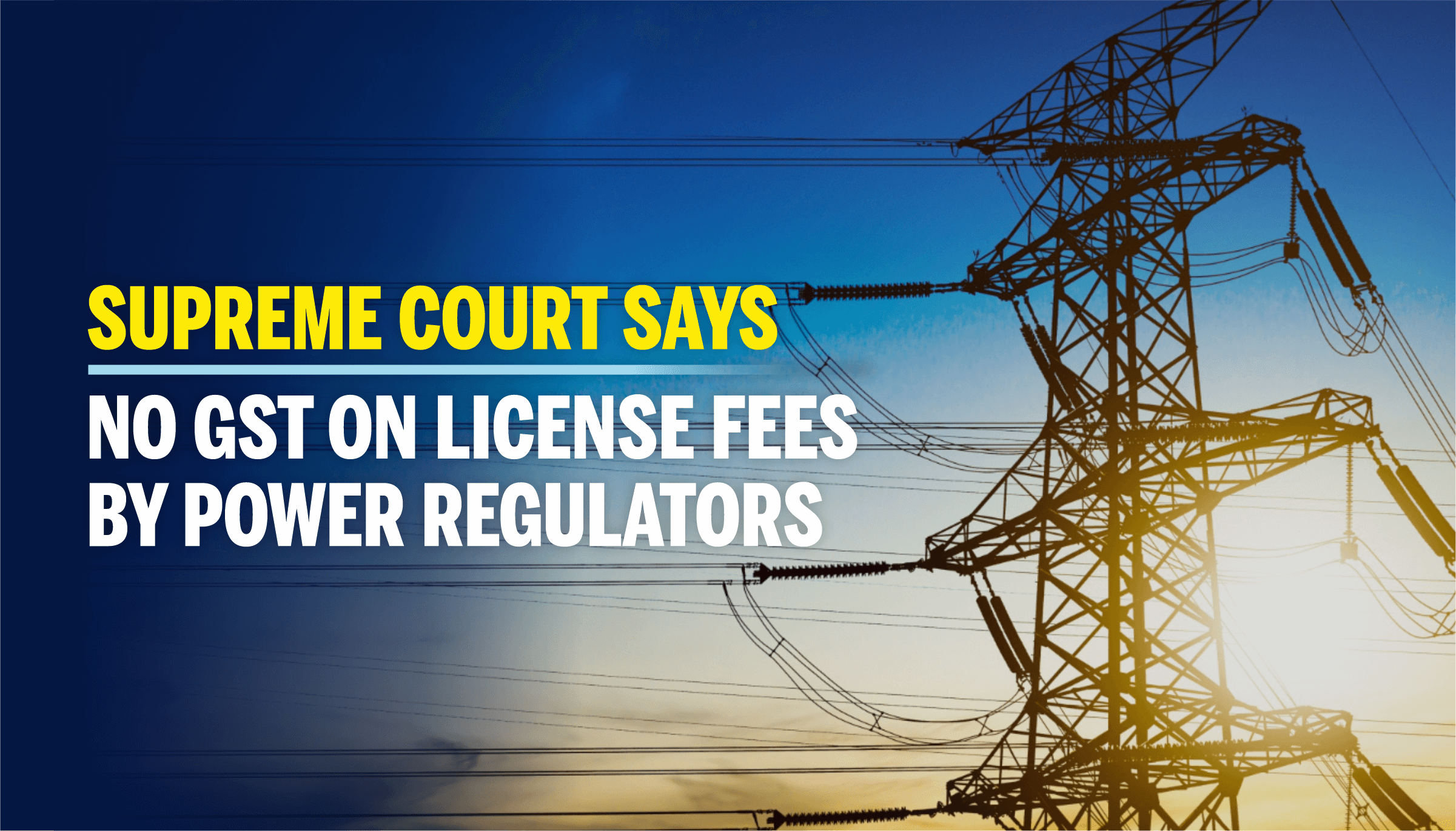SC Says No GST on License Fees by Power Regulators

In a significant legal development, the Hon’ble Supreme Court, on July 21, 2025, dismissed the Revenue’s Special Leave Petition (SLP) challenging the Delhi High Court’s decision that Goods and Services Tax (GST) is not applicable on license fees collected by Electricity Regulatory Commissions (ERCs), such as the Central Electricity Regulatory Commission (CERC) and the Delhi Electricity Regulatory Commission (DERC).
This ruling puts to rest a contentious issue surrounding the taxability of statutory fees collected by regulatory authorities under GST law.
Background of the Case
ERCs, as part of their statutory mandate under the Electricity Act, 2003, issue licenses to electricity transmission and distribution operators and charge corresponding fees. The GST authorities sought to classify these collections as taxable services under Heading 99863 of Notification No. 11/2017-Central Tax (Rate), treating them as “support services to electricity, gas, and water distribution.”
The regulators contended that these collections are a part of their statutory and quasi-judicial functions and not a supply of service within the meaning of Section 7 of the CGST Act, 2017. They further argued that the levy of GST on such fees would be contrary to the exclusions listed in Schedule III and undermine the regulatory independence conferred under the law.
Key Findings of the Delhi High Court
The Delhi High Court decisively quashed the GST demand, emphasizing the following:
-
Statutory Function: Issuance of licenses is a core statutory function, inherently interlinked with the Commission’s regulatory and adjudicatory responsibilities.
-
Not a Business: The activity does not amount to “business” under Section 2(17) of the CGST Act, as there is no commercial intent or profit motive.
-
No Consideration: License fees do not qualify as “consideration” under Section 2(31), lacking any element of inducement or contractual reciprocity.
-
Schedule III Protection: Services provided by courts and tribunals—analogous to the ERCs’ functions—are excluded from GST under Entry 2 of Schedule III.
-
Supremacy of the Statute: The Court clarified that classification entries in notifications cannot override the statutory framework laid down in the CGST Act.
Supreme Court’s Verdict
In rejecting the SLP, the Supreme Court noted that there was no substantial question of law warranting interference. This affirmation by the apex court lends conclusive legal validity to the High Court’s interpretation.
Legal Significance
The decision reiterates a fundamental principle: statutory or sovereign functions carried out under legislative mandate are not amenable to GST. The implications are far-reaching:
-
Reinforces the integrity of Schedule III exclusions under GST law.
-
Prevents misclassification of sovereign functions as taxable supplies via delegated notifications.
-
Sets a precedent for other regulators and quasi-judicial bodies defending against similar tax claims.
Related Developments
The Allahabad High Court, in U.P. Electricity Regulatory Commission v. Addl. Commissioner of GST & Central Excise, had earlier stayed a similar demand, aligning with the reasoning of the Delhi High Court. These decisions collectively indicate a growing judicial consensus that taxation must not transgress statutory mandates.
Conclusion
The Supreme Court’s dismissal is not merely a legal closure—it is a reaffirmation of constitutional boundaries between taxation and regulation. By insulating regulatory license fees from GST, the courts have preserved the doctrinal clarity that not every government receipt constitutes a supply.
For businesses and regulators alike, this outcome provides clarity and reduces the risk of retrospective tax claims on similar statutory activities. For tax practitioners, it highlights the importance of understanding GST not just through its rate notifications but through the lens of legislative intent and statutory architecture.
As GST jurisprudence continues to evolve, this ruling is a timely reminder that notifications cannot create tax where the law itself does not recognize a supply.
